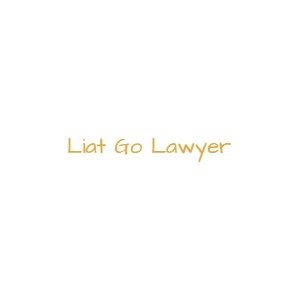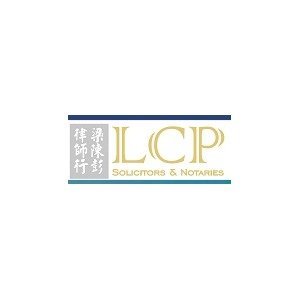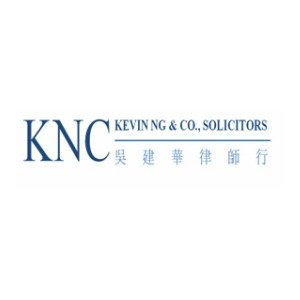Best Estate Planning Lawyers in Central
Share your needs with us, get contacted by law firms.
Free. Takes 2 min.
List of the best lawyers in Central, Hong Kong
About Estate Planning Law in Central, Hong Kong
Estate Planning in Central, Hong Kong encompasses the management and disposition of a person's assets during their life and after death. This legal practice area involves preparing a will, setting up trusts, arranging for a power of attorney, tax advice, and other related matters. Hong Kong follows common law for inheritance and trusts, but considerations for tax and international elements can add complexities to the process.
Why You May Need a Lawyer
Many situations might necessitate the need for an estate planning lawyer. For instance, if you have considerable assets, an experienced lawyer can help you navigate estate taxes and suggest strategies to minimize them. An estate planning lawyer is also crucial when setting up trusts or drafting a will to ensure your assets are distributed according to your wishes. If you have beneficiaries residing overseas, or possess overseas properties, the involvement of international law may require legal assistance. You can also avoid potential family disputes over your legacy with appropriate estate planning.
Local Laws Overview
In Hong Kong, the law recognizes both testamentary and inter vivos trusts. The law also does not enforce any forced heir obligations, thus allowing you to distribute your assets as you see fit. There is no estate or inheritance tax in Hong Kong. However, careful planning for potential tax obligations in other jurisdictions of assets or beneficiaries may be necessary. The validity of wills, the role of executors and trustees, and issues such as amendment, revocation, and challenging of wills are dictated by the Wills Ordinance and Probate and Administration Ordinance.
Frequently Asked Questions
What happens if I die without a will in Hong Kong?
If you die without a valid will in Hong Kong, your assets will be distributed according to Hong Kong's Intestates' Estates Ordinance. Your spouse and children are the usual primary beneficiaries, followed by parents and siblings.
How can I establish a trust in Hong Kong?
Establishing a trust in Hong Kong involves transferring assets to a trustee who manages and distributes them to the named beneficiaries. It is recommended to work with a trust professional or legal advisor to ensure all necessary legal documents are correctly prepared and executed.
Can I appoint a foreigner as an executor to my will?
Yes, you are free to appoint anyone you trust as an executor to your will. However, it might be more practical to choose someone who resides in Hong Kong to undertake these duties.
What is the role of a Power of Attorney in estate planning?
A Power of Attorney can be part of your estate plan if you want to designate a trusted individual to handle your affairs should you become unable to due to declining health or mental capacity.
Is there a need for estate planning if I have a small estate?
Regardless of the estate’s size, estate planning is essential. While sizable estates require more complex planning strategies, even smaller estates benefit from simple wills or trust provisions ensuring your assets are passed on according to your wishes.
Additional Resources
For additional guidance, you might consider reaching out to the Hong Kong Society of Trust and Estate Practitioners (STEP) or the Law Society of Hong Kong. Both provide a wealth of resources and can provide referrals to experienced attorneys in the area.
Next Steps
If you require legal assistance in estate planning, your first step should be to compile a comprehensive list of your assets and liabilities. Once this is completed, seek out legal assistance to discuss your unique situation and goals. A capable estate planning lawyer can help you explore your options and draft necessary documents that align with your objectives.
Lawzana helps you find the best lawyers and law firms in Central through a curated and pre-screened list of qualified legal professionals. Our platform offers rankings and detailed profiles of attorneys and law firms, allowing you to compare based on practice areas, including Estate Planning, experience, and client feedback.
Each profile includes a description of the firm's areas of practice, client reviews, team members and partners, year of establishment, spoken languages, office locations, contact information, social media presence, and any published articles or resources. Most firms on our platform speak English and are experienced in both local and international legal matters.
Get a quote from top-rated law firms in Central, Hong Kong — quickly, securely, and without unnecessary hassle.
Disclaimer:
The information provided on this page is for general informational purposes only and does not constitute legal advice. While we strive to ensure the accuracy and relevance of the content, legal information may change over time, and interpretations of the law can vary. You should always consult with a qualified legal professional for advice specific to your situation.
We disclaim all liability for actions taken or not taken based on the content of this page. If you believe any information is incorrect or outdated, please contact us, and we will review and update it where appropriate.
















